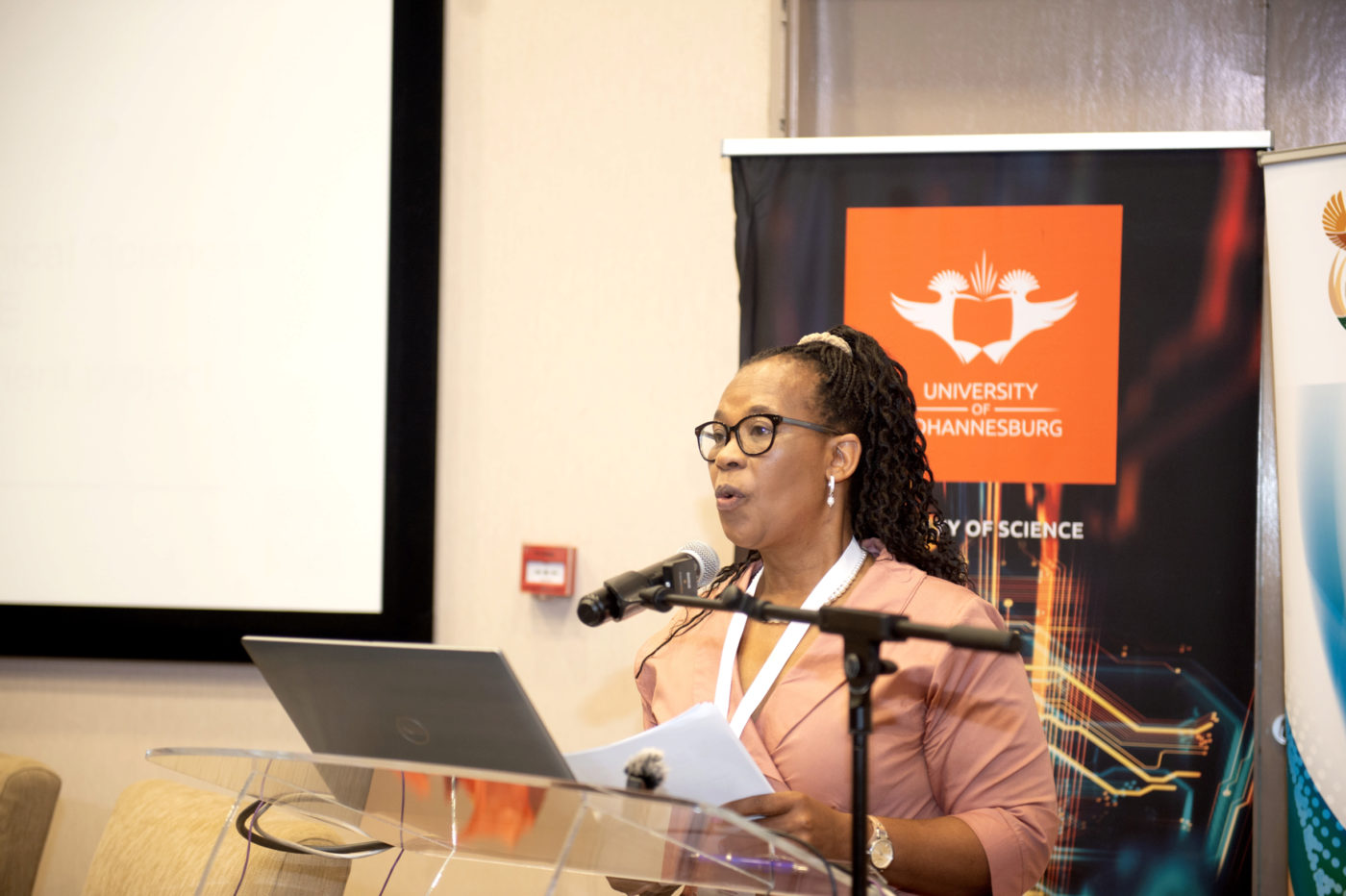UJ Bolsters STEM Education for High School Learners
As South Africa’s educational landscape undergoes significant transformation, the University of Johannesburg (UJ) stands out as a beacon of progress, actively tackling the critical challenges in science education. Recognising the pressing need to bolster expertise among science educators and empower high school learners, UJ’s Faculty of Science, in partnership with the National Department of Basic Education (DBE), has launched a groundbreaking initiative.
Employing a multifaceted strategy that includes teacher development workshops and on-site school visits nationwide, UJ is dedicated to transform STEM (Science, Technology, Engineering, and Mathematics) education. Professor Annah Moteetee, Executive Dean of UJ’s Faculty of Science, emphasises the initiative’s key role in equipping learners with historically disadvantaged backgrounds, with essential practical experience, crucial for higher education success. The initiative was launched at the University’s Bunting Road Campus on February 14, 2024.

“Prioritising mentorship and curriculum support across all levels is crucial,” explained Prof Moteetee. “Our initiative focuses on laying the foundational skills necessary for pursuing STEM fields, fostering inclusivity, and unlocking untapped potential.”
In alignment with national priorities for economic and social development, representatives from UJ’s Department of Chemical Sciences highlight the broader societal impact of the initiative. Supported by key stakeholders such as industry, private partners, and the DBE, UJ’s efforts signify a strategic partnership poised to drive educational advancement nationwide.
Moreover, the commitment of UJ’s Department of Chemical Sciences extends beyond academic excellence to address systemic challenges hindering students’ university transition. Acknowledging resource disparities, UJ aims to bridge the gap by providing access to essential laboratory facilities and tailored support mechanisms. This initiative amplifies and extends the reach of UJ’s Soweto Science Centre, catering to students and teachers in Gauteng Province.

Dr Mathapelo Seopela, Project Manager and lecturer in UJ’s Department of Chemical Sciences, explained plans to ensure the project’s sustainability and long-term impact. “Our strategy involves expanding the project to guarantee its sustainability and enduring effects. In provinces where schools are identified, we will establish training centres tailored for teachers and subject specialists. Furthermore, we will enlist unemployed postgraduate education graduates to augment school staff, ensuring continuity as learners advance while teachers and subject specialists remain. Additionally, we aim to diversify the project’s focus beyond chemistry to embrace all facets of STEM education, facilitating its expansion to more schools and provinces.”
Dr Seopela expressed the intention to further develop the project to extend assistance to schools and learners beyond the realm of chemistry alone. Their aim is to ensure that all aspects of STEM education receive the attention they deserve. This expansion will also facilitate the project’s rollout to additional schools and provinces soon.

Among the notable attendees at the launch were Professor Letlhokwa Mpedi, the Vice-Chancellor and Principal of UJ, Professor Sehaam Khan, the Deputy Vice-Chancellor Academic (UJ), Mr Matome Chiloane, the MEC for Education in Gauteng, Dr Mathole Motshekga, a Member of Parliament, and Angie Motshekga, the Minister of Basic Education. Additionally, industry partners including the South African Democratic Teacher’s Union (SADTU), the South African Principal’s Association (SAPA), the National Professional Teachers’ Organisation of South Africa (NAPTOSA), schools from across five provinces, and various other stakeholders were present.
Prof Moteetee concluded: “UJ’s Faculty of Science is a driving force for progress. By championing innovative teaching methods and actively engaging with the community, UJ demonstrates its commitment to nation-building and societal empowerment.”

